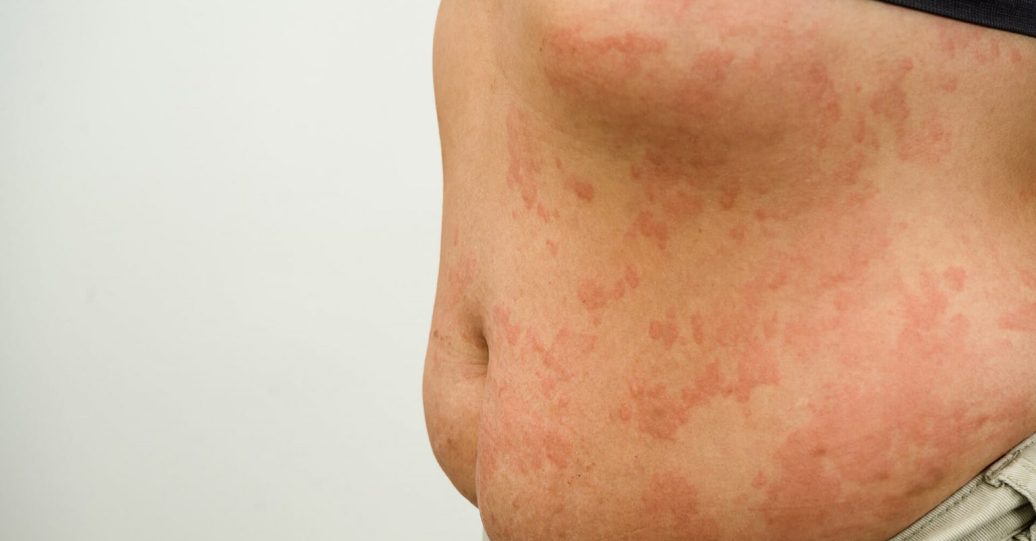A QUICK OVERVIEW OF COLD URTICARIA
 Jul,28,2020
Jul,28,2020
Cold urticaria is a condition that happens when the skin reacts to cold and develops reddish and itchy welts or hives. People with the condition exhibit different symptoms; while some would have minor reactions to cold, others experience severe complications. Usually, those who have cold urticaria suffer low blood pressure problems when swimming in cold water. In some cases, it can even lead to fainting or shock.
Symptoms
The condition is commonly seen in young adults. In most cases, timely treatment and preventive steps can help to ease the symptoms and avoid further complications. The most common symptoms of cold urticaria include:
- Reddish and itchy welts on the skin that appear for a short term
- Worsening of the reaction when the skin is exposed to warm temperatures
- Swelling of the hands when holding frozen or cold items
- Swelling of the lips when consuming frozen or ice-cold food and drinks
In severe cases, the patient can also experience a reaction to cold across the body, which can lead to fainting, increased heart rate, swelling of the limbs or upper body, and shock. Some patients also report experiencing symptoms such as swelling of the tongue and throat muscles, which makes it very difficult for them to breathe.
Generally, the symptoms of the condition show up very quickly after the skin is exposed to cold water or when a sudden drop in air temperature happens. Damp and windy climate can also make the symptoms appear, which might last for a couple of hours. Note that the symptoms become worse when the entire body is exposed to cold, such as when swimming. Such a situation can lead to unconsciousness and drowning as well.
Causes
The exact cause of cold urticaria is still unknown. However, experts believe that the condition occurs due to the hypersensitivity of the skin cells toward cold, which might be triggered by a faulty gene, a virus infection, or an illness. When a person with cold urticaria is exposed to cold temperature, his/her body releases histamine and other chemical compounds into the bloodstream. These chemicals cause a skin reaction and lead to the development of redness and itchy hives. Besides, experts also say that the condition is likely to occur in young adults when they have an underlying health condition, such as hepatitis or cancer.
It is important to see a doctor at the nearest community healthcare center if you feel any abnormal skin reactions to cold. Even if your symptoms are mild, you should consult with an expert to rule out the chances of cold urticaria or any other underlying condition that could be causing the symptoms. If you experience a whole-body response or difficulty in breathing when exposed to cold temperatures, you should seek emergency care to deal with the condition.
When you consult a healthcare provider, he/she would examine your symptoms and place a small ice cube on your skin for around five minutes to see if you have cold urticaria. If your skin forms a raised, reddish hive a couple of minutes after the ice cube is removed, it shows that you have cold urticaria. The doctor might then recommend a few blood tests to see if any infection or any other underlying condition is causing the symptoms. After checking the diagnostic reports, the doctor would prepare a treatment plan to control the symptoms of cold urticaria and to stop it from causing any further complications.
Treatment
In a few cases, the symptoms of cold urticaria go away on its own after a couple of weeks. However, it might last for much longer in some cases. Note that there is no cure for the condition, but its ill effects on the health of the patient can be controlled with proper treatment and preventive steps.
Usually, doctors at community healthcare centers recommend over-the-counter antihistamines and other medications to block the release of histamine and to ease the symptoms of the condition. The most common medications prescribed to treat cold urticaria include non-drowsy antihistamines such as loratadine, cetirizine, and desloratadine. Doctors recommend taking such medicines before you are going to be exposed to cold in order to prevent a reaction. If these medications do not offer much relief, the doctor might recommend omalizumab, which is usually prescribed to treat the symptoms of asthma.
If the diagnosis of cold urticaria showed signs of any other underlying condition, your doctor might also recommend medications or treatment procedures for that. On the other hand, if you have a medical history of a systemic reaction, the doctor might prescribe an epinephrine autoinjector to deal with the reaction to cold.
You should also protect your skin from the cold and sudden drop in air temperature. If you are going for a swim, you should first dip your hand in the water and see if the water temperature causes any skin reaction. Similarly, you should avoid frozen or ice-cold food and drinks to prevent further complications like a swollen throat or breathing problems.
To Book an Appointment
We are standing by to assist you.

 Call Now to
Call Now to 



